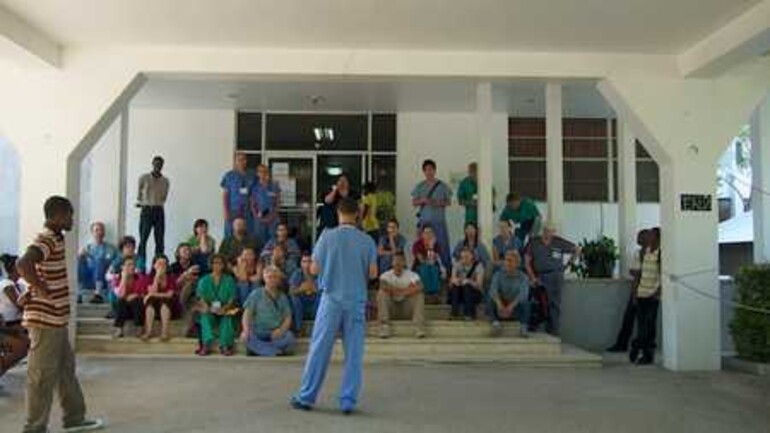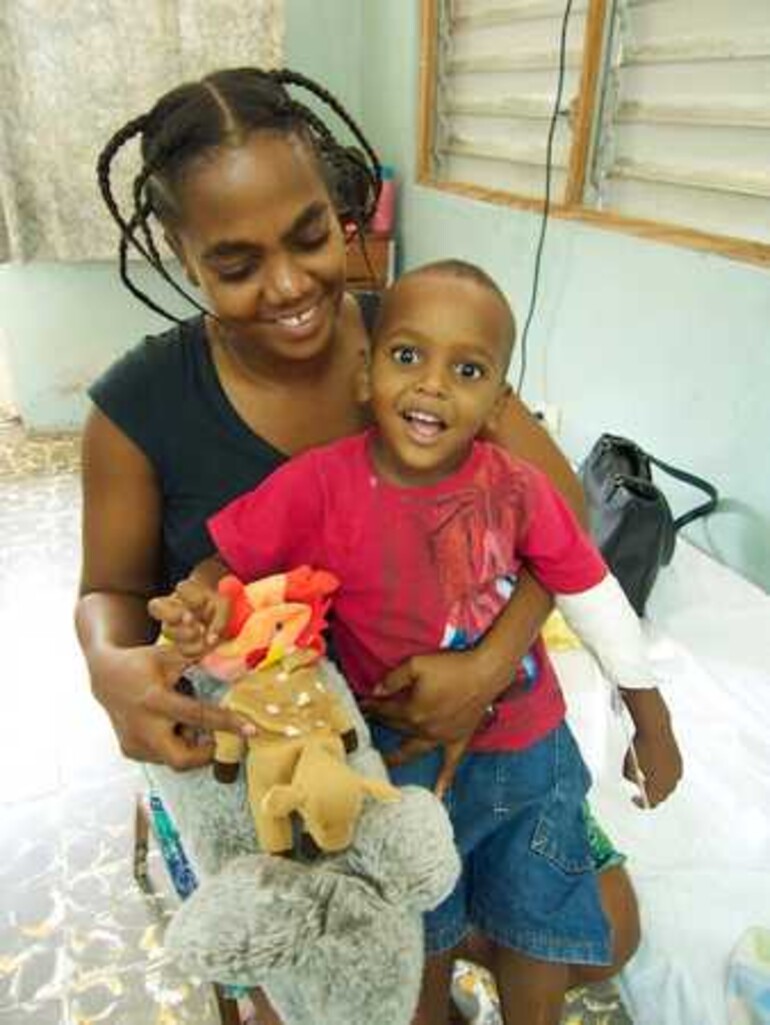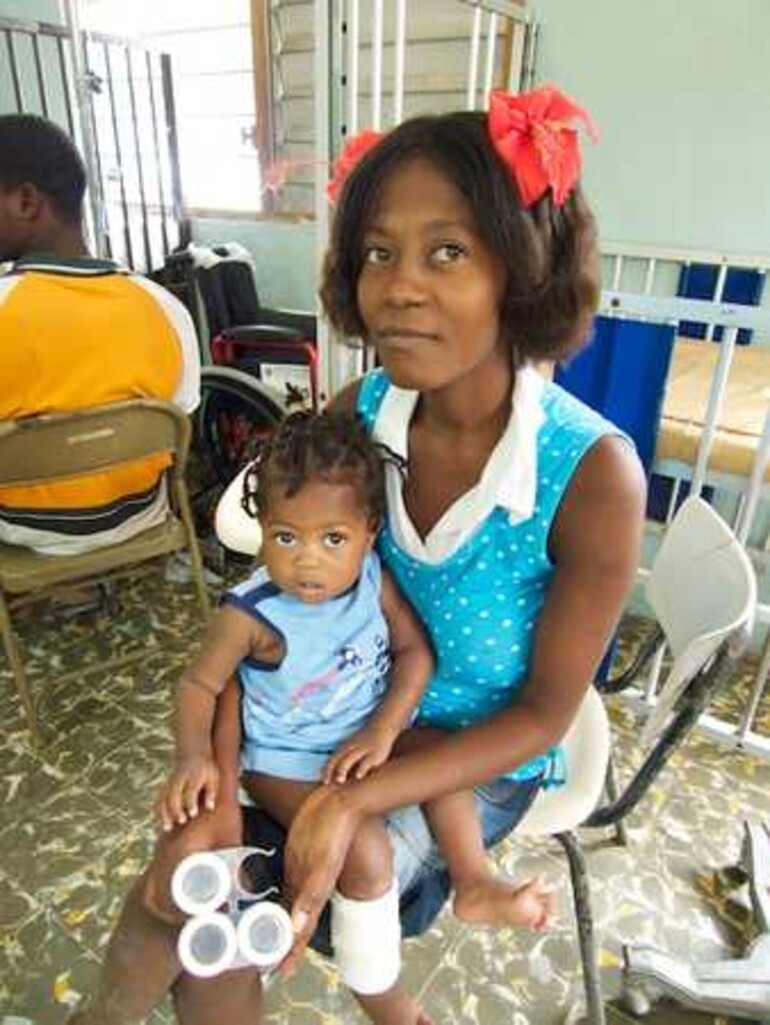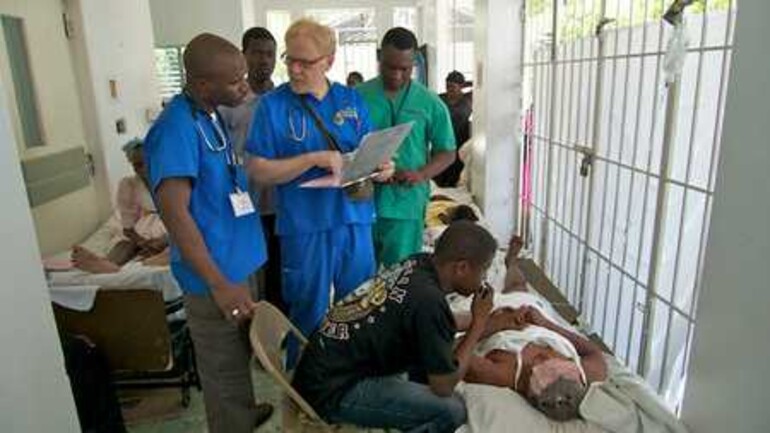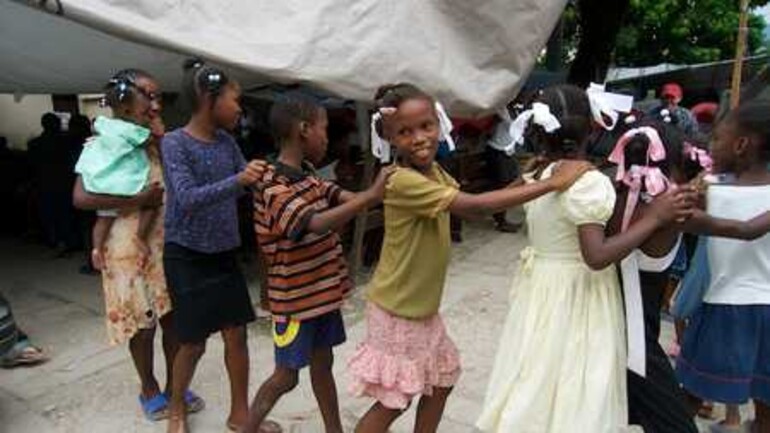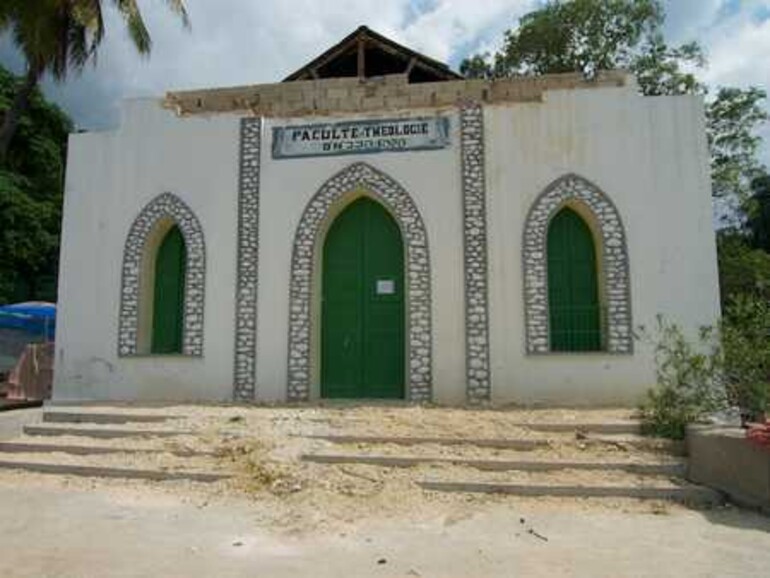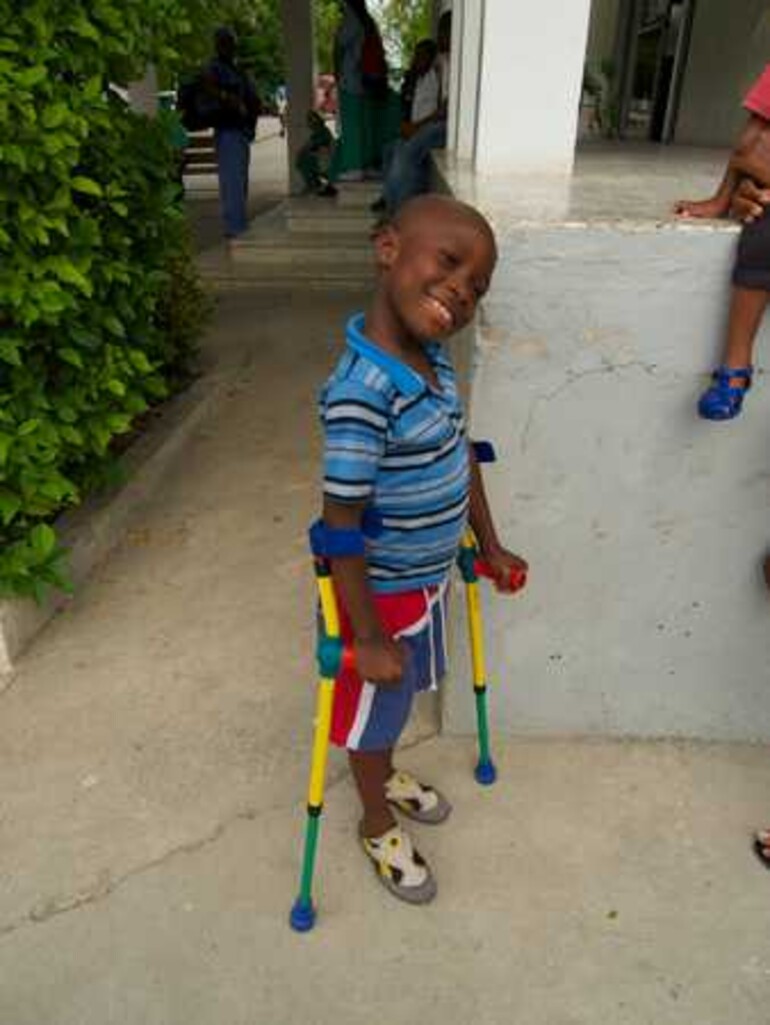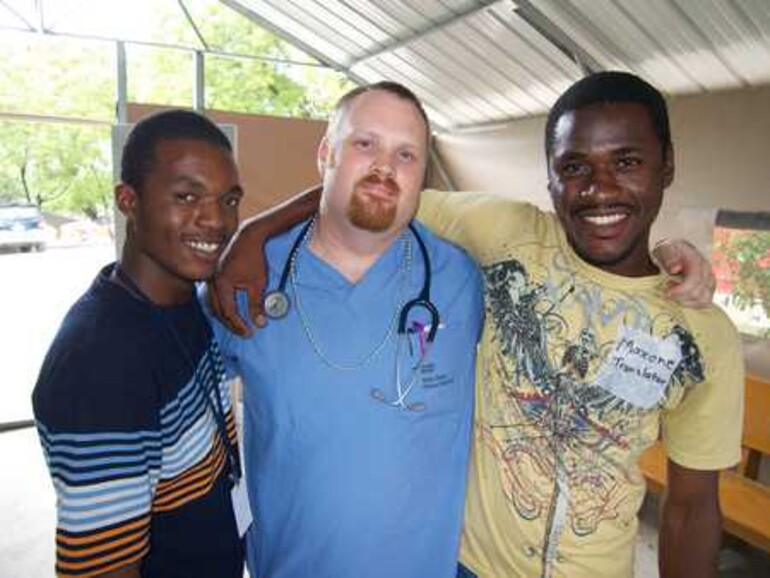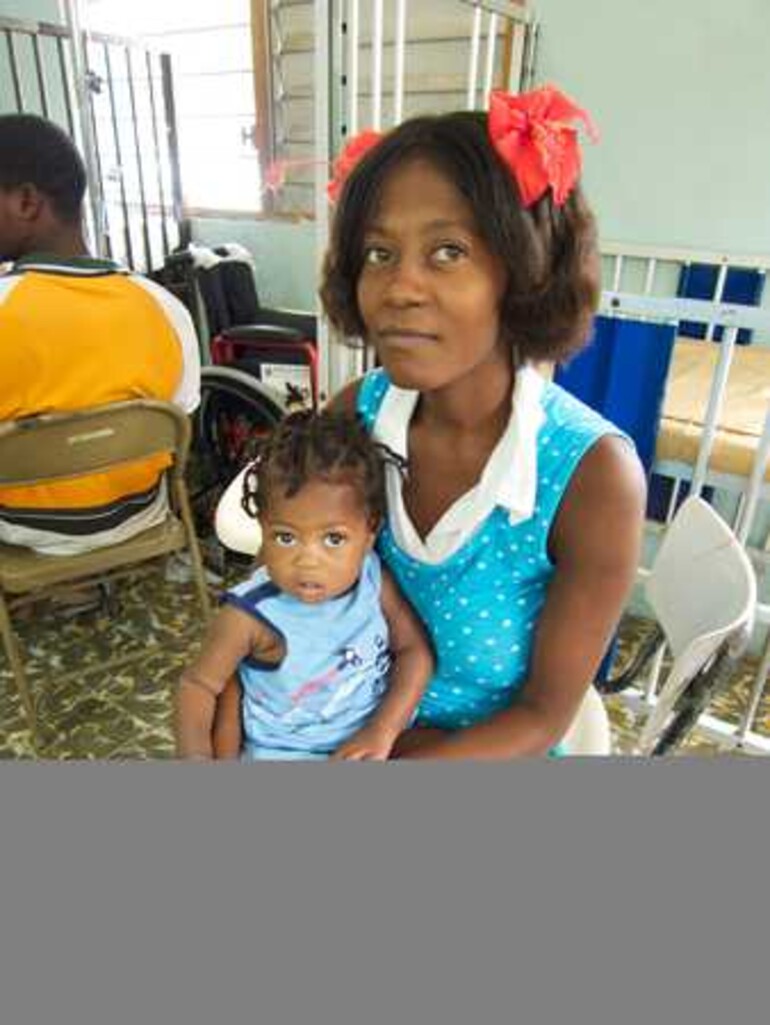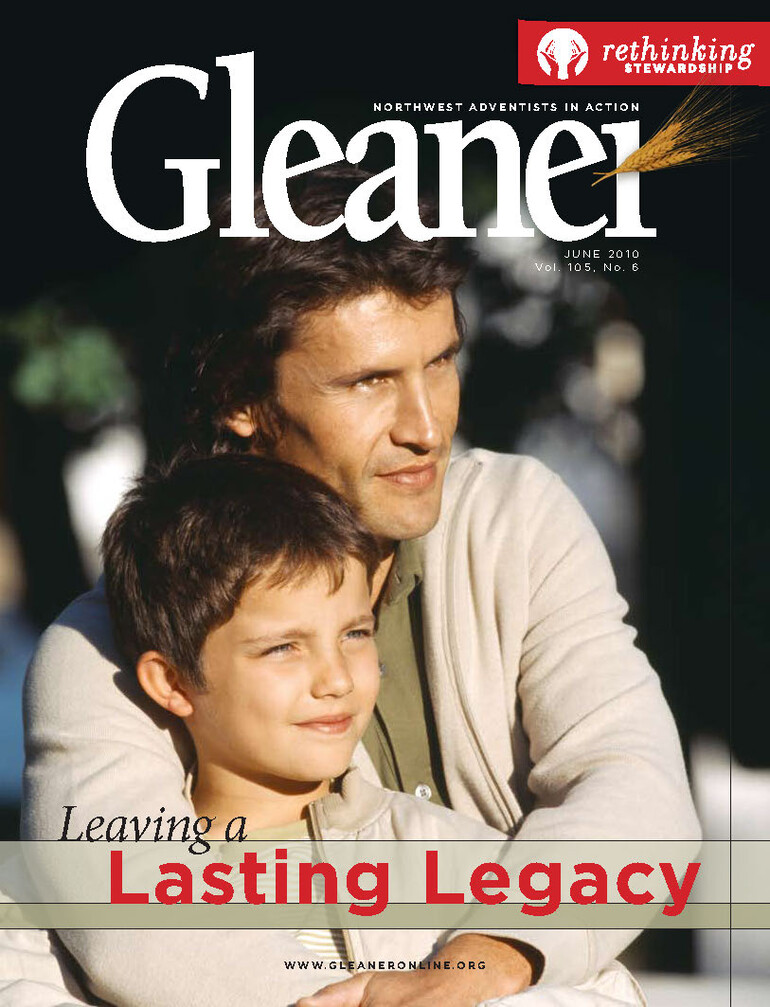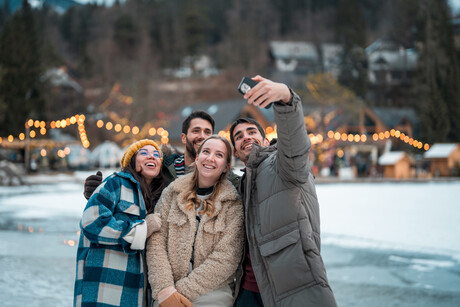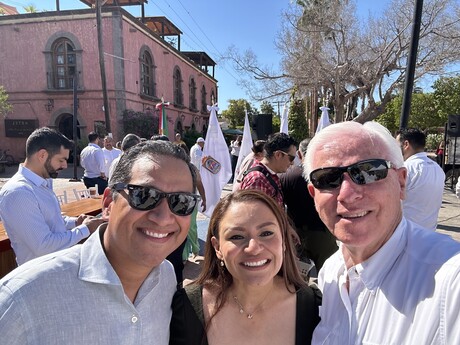Some Adventist Churches in Port au Prince, Haiti, are destroyed and broken. At least one is intact but it stands empty. Since the devastating earthquake earlier this year, church members refuse to step foot inside most buildings. Instead, they occupy tents in the yard and hold worship services al fresco.
An exception to this is the Hopitale Adventiste d'Haiti where Jack Hoehn, M.D., and many volunteers from Walla Walla General Hospital visited to provide care and support in April.
The 11-person contingent visited the disaster-ravaged region for two weeks, delivering much needed medical care but more importantly, a loving message of hope. More often than not, the volunteers themselves received the blessings.
Hoehn facilitated the trip and spoke of his journey poignantly. He says, "I didn't treat many patients, but tried to keep the 40 volunteer-medical workers and scores of daily visitors supplied.
"I was tasked with organizing the huge mountain of donated supplies," he states, describing a boatload of supply boxes, some useful, many superfluous.
"I had supplies for procedures not done in Haiti, but I ran out of Chloroquine to treat malaria," he laments. And still, inadequate supplies could not stop the healing that took place every day.
"I remember an elderly woman sitting on a bench with a cloth over her head, obscuring her face. I asked her with gestures if I could look. The entire left side of her face was covered with a bulging tumor," he describes. "I was so glad for the specialists and anesthesiologists who make amazing surgeries happen here."
Hoehn describes the facility as largely a surgical hospital led by Scott Nelson, an orthopedic surgeon from Loma Linda University. "People with rods in their legs are all around — some in donated wheel chairs, some walking with crutches, others living with amputations done in the flurry of emergency care after the earthquake."
Despite hardships, the loving spirit of the people persists. "I was walking down the road when I suddenly felt a gentle little hand slip into mine," says Hoehn. "I looked down to see the sweetest little girl, perhaps 4 years old, with her hair tied up in pigtails made of rags. She was not pushy or shy, she just wanted to hold my hand as we walked down the road, her big sister walking on the other side."
"What a Haitian thing to do — when you walk down a road, you hold the hand of the person next to you," Hoehn says.
And so, the WWGH team will continue to hold the hands of Haitian people, offering care and healing when possible, and kindness and prayer at all times.





